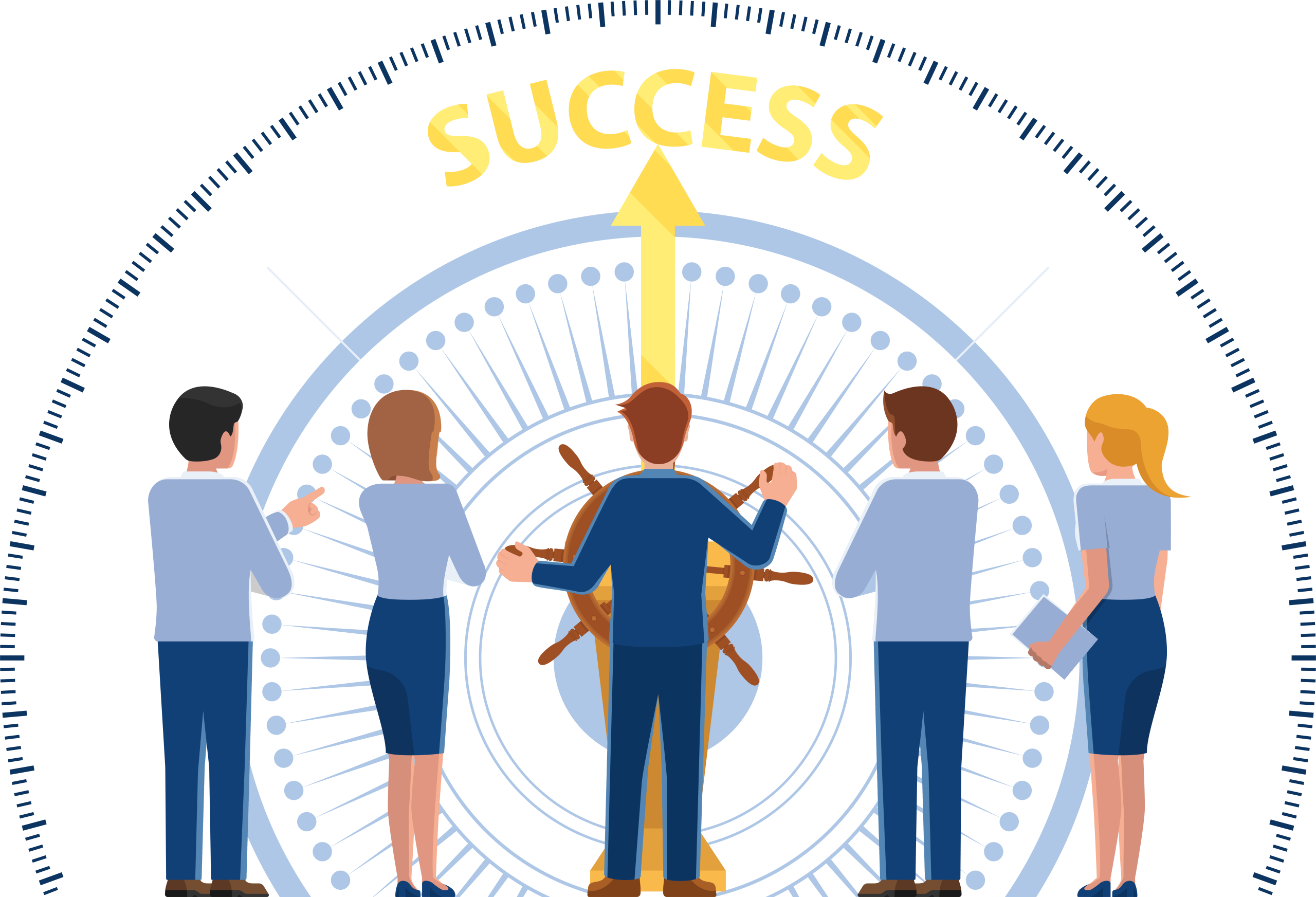The Value of Professional Certification in Customer Success Management
Part One: Managing Customer Success Management Complexity
Every job role from the most basic to the most challenging requires a level of capability from the performer in order for that job to be completed to an acceptable standard. The levels of those challenges and the standards by which performers are measured may vary quite considerably.
For example, one would expect both a much greater level of technical expertize and physical ability, plus a much higher standard of scrutiny and evaluation for jet fighter pilots than for say, ice-cream vendors, or newspaper sellers.
Where does customer success management sit within the scheme of things? I would suggest that it actually fits well within the top quadrant of job roles in terms of its level of challenges, and this is for a number of reasons.
Managing People – The Hardest Part
One such consideration, and perhaps the most important consideration of all, is the customer-facing nature of the CSM role. Customers (or clients if you prefer) are the lifeblood of any business and of course without enough of them, any business will fail. Customers are (or in the case of business clients, are represented by) people, and the thing about people is that they come in a wide variety of what might loosely be described as “shapes and sizes” that cannot all be treated identically in the expectation of getting the same result.
This is not the same as for most other things, such as dollar bills, or pine trees, or battery packs. Each dollar bill is the same as any other dollar bill, and so all can be treated alike in the full and certain expectation that the result will be the same. I’m not suggesting that the job of an accountant or bookkeeper is an easy one, but I am saying that in at least this one respect, they can rely upon the core material of their job doing what is expected of it.
Individual people on the other hand are exactly that – individual. Taken as a group we may be able to describe their characteristics, but as individuals, a specific person can be stronger or weaker at their job in general, more or less capable in any number of specific aspects of their role, harder or easier to get on with and work with, faster or slower to understand concepts and/or make decisions, be more or less conscientious about their work, and possess greater or lesser appetites for risk-taking.
From a personality perspective, they may be pleasant, polite, and easy to get on with and/or do business with. On the other hand, they may be unpleasant, impolite, and awkward to get on with and/or do business with. They may be formal or relaxed, aggressive or passive, domineering or submissive, decisive or hesitant, considerate or thoughtless, a quick decision maker or a ponderous one, and so on and so forth.
In addition to the above considerations (which themselves are really just scratching the surface in terms of potential similarities and differences between each of us), it may well be the case that you are not just dealing with one person (one stakeholder as it were) but with multiple stakeholders, each one of whom may be more or less similar or different to the others.
Not only might they be different in one, some or all of the ways already described, but they may all start with different biases, and/or reach different conclusions based upon the same data, and/or want different outcomes in the first place. There may (in other words) be disagreements between stakeholders, which in turn may or may not be easy to resolve.
To summarize, working with stakeholders of any kind is not always easy, and by virtue of their importance to us, working with customer stakeholders is even more difficult. It is in fact one of the most complex tasks that there is. Customer success managers work with stakeholders a lot of their time. CSMs do not hold power or authority, so they cannot rely upon those to get them by. They need to have very strong stakeholder management and customer-facing skills to enable them to accomplish their work effectively.
Context Awareness – Being Relevant
A large part of the customer success manager’s role is the assessing of a client’s needs and the provision of advice based upon these assessments. This advice might sometimes be in the form of a formal report but is oftentimes much more informal and somewhat akin to coaching or mentoring, rather than project management.
Naturally, the CSM cannot give good quality advice unless they understand the “customer’s unique context”, by which I mean the situation in which that client finds himself in. Of course, the overall complexity of a requirement will generally corollate quite strongly with the complexity of the product or service that has been purchased, as this is of course selected to fit the requirements of whatever challenge the client is currently or will shortly be facing.
This context will partly generally relate to the type of business that the client operates, and partly unique for that individual company. Take, for example, a small business that provides bookkeeping and end-of-year accounts services to other small businesses. It would almost certainly not be much use for a CSM who did not understand basic bookkeeping and accounting principles to attempt to give client stakeholders from this company any advice around, say, bookkeeping and accounting software adoption and management best practices. We must never forget as CSMs that the one biggest responsibility we have to our clients is to ensure we give best practice advice at all times. This cannot generally be done at all and certainly cannot be done well without a strong degree of customer context awareness.
Aside from the benefits of an enhanced understanding of the more technical aspects of the customer’s business, CSMs will also benefit from sharing a common language and culture with the customer’s stakeholders if they have undergone the same or similar previous job roles as the stakeholder. This shared heritage often builds instant rapport and enables faster and deeper levels of empathy to flow.
CSMs must therefore develop excellent customer-facing expertize in terms of stakeholder analysis, and stakeholder management, and be able to create high levels of empathy, rapport, and trust with client stakeholders. Depending upon who the CSM works for, this may need to be more general in their nature to ensure a “basic fit” within any industry or job role or may be required to be laser-like focused on just one or a small number of specific industries, in order to have a sufficient grip on the topic to be able to speak with a sufficient degree of competence and confidence and (most important of all) with authority on the topic in hand.

Technical Awareness – The Art of the Possible
But this context is only the starting point for our CSM. Having understood the client’s challenges and developed sufficient levels of empathy, trust and rapport with them, next up on the list is the customer success manager’s ability to generate creative solutions to resolve the challenges that the client faces.
This means having both the technical background in the art of the possible with the CSM’s company’s portfolio of products and services, and the capacity to use imaginative problem-solving skills, combined with an entrepreneurial spirit and a can-do attitude, to come up with novel approaches to overcome technical and other challenges that stand in the way of the client’s success.
Of course, the previously mentioned empathy, rapport and trust development skills will now stand them in good stead when they need to communicate, negotiate, and yes “sell” their ideas to the relevant stakeholders to gain their agreement and commitment to proceed.
Customer success managers are not necessarily as technically adept as full technical experts in each specific product. There will be limits to their time or even their interest to learn the minutiae of every product and service. But of course, other more technical people can always be brought in as and when they are needed to consult with and gain their technical input. The CSM’s role is broader than this and therefore requires a broader technical awareness across the whole portfolio (generally speaking), rather than a specialist technical awareness in just one or two product or service areas. CSMs are therefore technical generalists and will call upon technical specialists to assist when they are required.
Best Practices – What to Do and When to Do It
Finally comes the part that for many CSMs is actually the hardest to master. This is the science or at least the process of customer success management itself. By following best practices, the customer success manager ensures that they complete all the tasks that need to be completed and that these are completed in the right order and to the right standards of cost, quality and timeliness.
Here is where the process really becomes key to success. By following previously laid down steps, the CSM becomes much more efficient and effective than if they are left to have to work out what needs to be done and how it should be achieved each time.
As well as efficiency savings, the following best practice creates a quality standard across all team members and all activities. Because everyone is now doing the same things, using the same resources in the same ways, investment can be made in assets and resources such as software applications, checklists and playbooks that will help the CSM become even more efficient and effective.
By introducing standardized methodologies, CS leaders can more easily measure activity and determine performance levels, both for the team as a whole and also for each individual team member. As Peter Drucker is famously quoted as saying, “You cannot manage what you do not measure.”. So, gaining the ability to create standardized tasks that can be monitored and measured is a great way to help take control of customer success management activity and hold CSMs accountable for the results they can achieve for both customers and the company itself.
Conclusion
When considering the customer success management role as a whole, it seems clear not only that there is a significant level of complexity already inherent within the role of CSM, but that over time, the level of complexity is growing to keep pace with the increased sophistication and demands placed upon the role.
Managing that complexity within an entire team requires a system. It needs a way of measuring and classifying existing capabilities and it needs a process whereby progress from both individual CSMs and from the team as a whole can be tracked and identified. Those that require greater levels of ability need to be allocated the resources to enable them to gain those ability levels. But additionally, there is a requirement to prove those levels, both internally and even to the outside world.
Certification is a great way to create standards and manage expectations. Certification provides a simple way to track, measure and prove progress. When selecting the right certification, it is essential to select something that covers the entire range of complexity faced by the CSM, so that all aspects of the customer success manager’s core tasks (or at least as many as possible) are covered.
One such certification is the Certified CSM Professional (CCSMP) certification from Practical CSM. For more information on this and other services from Practical CSM, please browse our website or email sales@practicalcsm.com.








